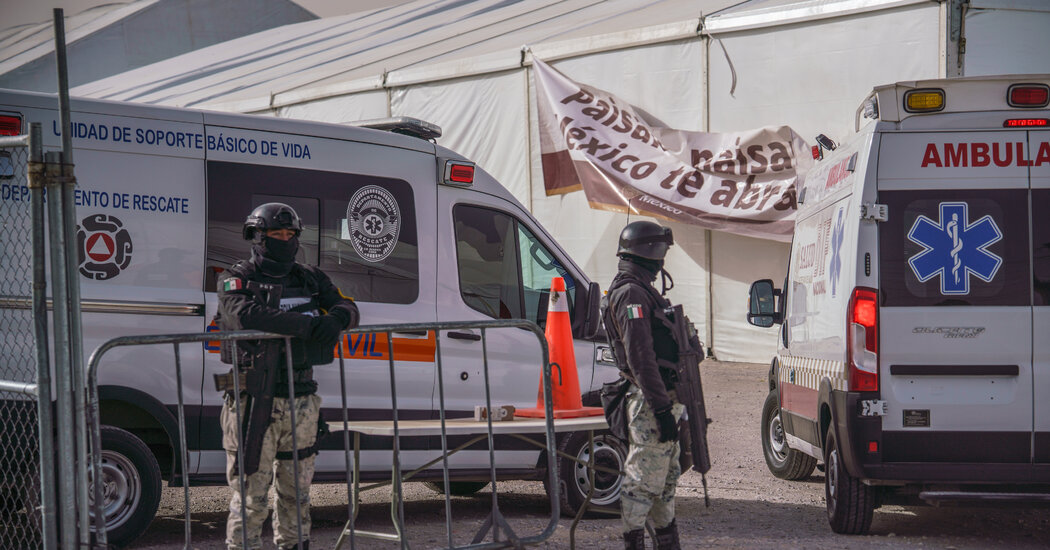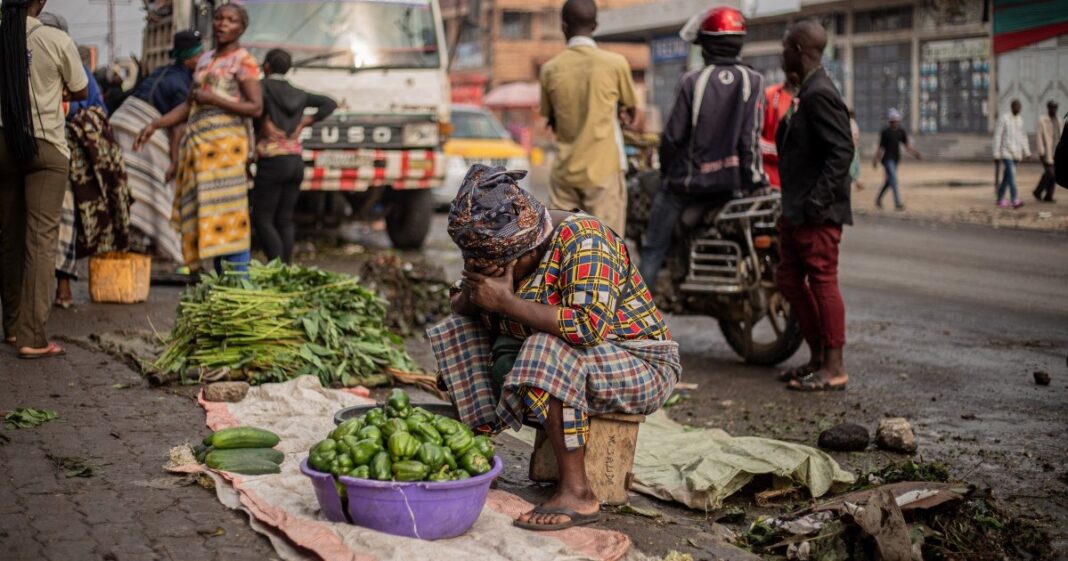As part of her deal with President Trump to stave off steep tariffs on Mexico for a month, President Claudia Sheinbaum pledged to send 10,000 additional members of the country’s National Guard to the border to “prevent drug trafficking from Mexico to the United States, particularly fentanyl.”
The deal is likely to put a lot of pressure on the National Guard, a force that is just a few years old and was recently put under the control of Mexico’s military.
Unlike in the United States, there is no dedicated border patrol in Mexico. Because immigration officers are barred from carrying guns, Mexico relies on the military and National Guard to police the border, said Jonathan Maza, a Mexico-based security analyst.
In recent years, Mexico has relied heavily on the National Guard to help curb illegal migration into the United States. In 2019, under pressure from Mr. Trump over migration, Andrés Manuel López Obrador, the country’s then-president and Ms. Sheinbaum’s mentor, sent National Guard troops to Mexico’s southern border with Guatemala.
Now that force, which has a total of about 130,000 members, is being asked to help more with stopping the flow of drugs north.
Ms. Sheinbaum said the 10,000 members would be pulled from other areas of the country, without providing specifics. She also would not say how much this would cost. The Mexican government said on Tuesday that the troops had already been redeployed to 18 cities and towns along the U.S. border.
If the National Guard is deployed to cities like Tijuana or Nuevo Laredo, places that have struggled with security and the flow of illicit drugs, Mr. Maza said, “it will help a lot to combat or stop or dissuade drug trafficking.” But he said it would be important for U.S. and Mexican officials to share more intelligence and information to stop the flow of drugs.
Ms. Sheinbaum highlighted on Monday the fact that both countries had vowed to work together to tackle not only drugs moving north but illegal guns flowing south, which have ended up in the hands of organized crime groups in Mexico.
She also said the National Guard would help with overall security at the border.
The National Guard was created in 2019 to fight crime, but last September, Mexican legislators amended the Constitution to put it under the military’s control. Critics have said the move gave the military, which has faced many allegations of human rights abuses, too much control over public security and civilian life.
Given the importance to Mexico of avoiding tariffs, Mr. Maza said, the National Guard can help show short- to medium-term results. But he warned that criminal groups adapt.
Cecilia Farfán-Méndez, a drug policy researcher at the Institute on Global Conflict and Cooperation at the University of California, San Diego, said that where the troops are deployed would be critical.
“If you’re only going to have them at the border, that doesn’t address the entire fentanyl production chain,” she said. “It’s not like production is all happening at the border, and we know that it happens in other parts of the country.”


